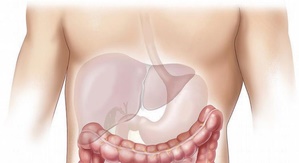Semaglutide, a drug widely used to treat type 2 diabetes, has shown encouraging results in reversing liver damage in patients with advanced fatty liver disease, according to a global study led by researchers at King’s College London.
Published in the New England Journal of Medicine, the trial investigated the impact of semaglutide on patients with Metabolic dysfunction-associated steatohepatitis (MASH), a severe and potentially life-threatening form of liver disease. MASH is the more advanced stage of Metabolic dysfunction-associated steatotic liver disease (MASLD), formerly known as non-alcoholic fatty liver disease (NAFLD), and is closely linked with obesity, type 2 diabetes, and cardiovascular conditions.
The large-scale trial involved 800 participants across 37 countries. Participants were randomly assigned to receive a weekly 2.4 mg dose of semaglutide or a placebo over a period of 72 weeks, alongside lifestyle counselling.
The findings revealed that 62.9 percent of those who received semaglutide showed a resolution of steatohepatitis — inflammation in the liver caused by fat accumulation — compared to just 34.3 percent in the placebo group. Additionally, 37 percent of the semaglutide group experienced improvement in liver fibrosis, a condition marked by the scarring of liver tissue, compared to 22.4 percent in those given the placebo.
“MASLD is a growing problem worldwide, and this trial offers real hope for patients with MASH,” said Professor Philip Newsome from King’s College London. “While the results should be interpreted with caution, they show semaglutide can be a powerful therapeutic option for this advanced liver condition.”
Beyond liver health, the study also found that patients receiving semaglutide showed improvements in liver enzyme levels, blood markers of fibrosis, and achieved an average weight loss of 10.5 percent — a factor known to benefit liver function.
However, the researchers noted a higher incidence of gastrointestinal side effects among patients treated with semaglutide. These included nausea, diarrhoea, constipation, and vomiting.
Despite the side effects, experts say the findings represent a major step forward in the treatment of fatty liver disease, particularly in cases where lifestyle changes alone may not be sufficient.
-IANS




















